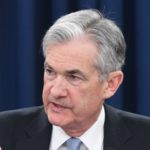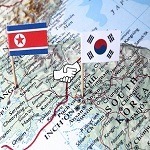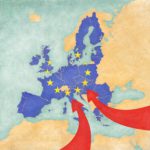The central bankers have used all sorts of tools. If the next crisis comes, they have nothing left. When the markets crash, their motto is: Close your eyes and let print even more money. Jerome Powell can be an exception, however.
Draghi and Yellen have perfected their image as perfect bail-out bankers in recent years: Draghi flooded Europe’s financial markets with cheap money and rescued Greece from the downward spiral with billions in aid; every time the US stock market lost more than 2% last year, someone from Yellens Fed appeared and assured the uncertain investors that the American economy was doing fine. Both used all possible tricks to boost economies and prevent the next crisis: they introduced zero interest rates, bought bonds and shares, even from private companies. Now Draghi’s ECB is still unprepared for the next crisis, as it has no funds left unless it introduces negative interest rates. Continue reading

















